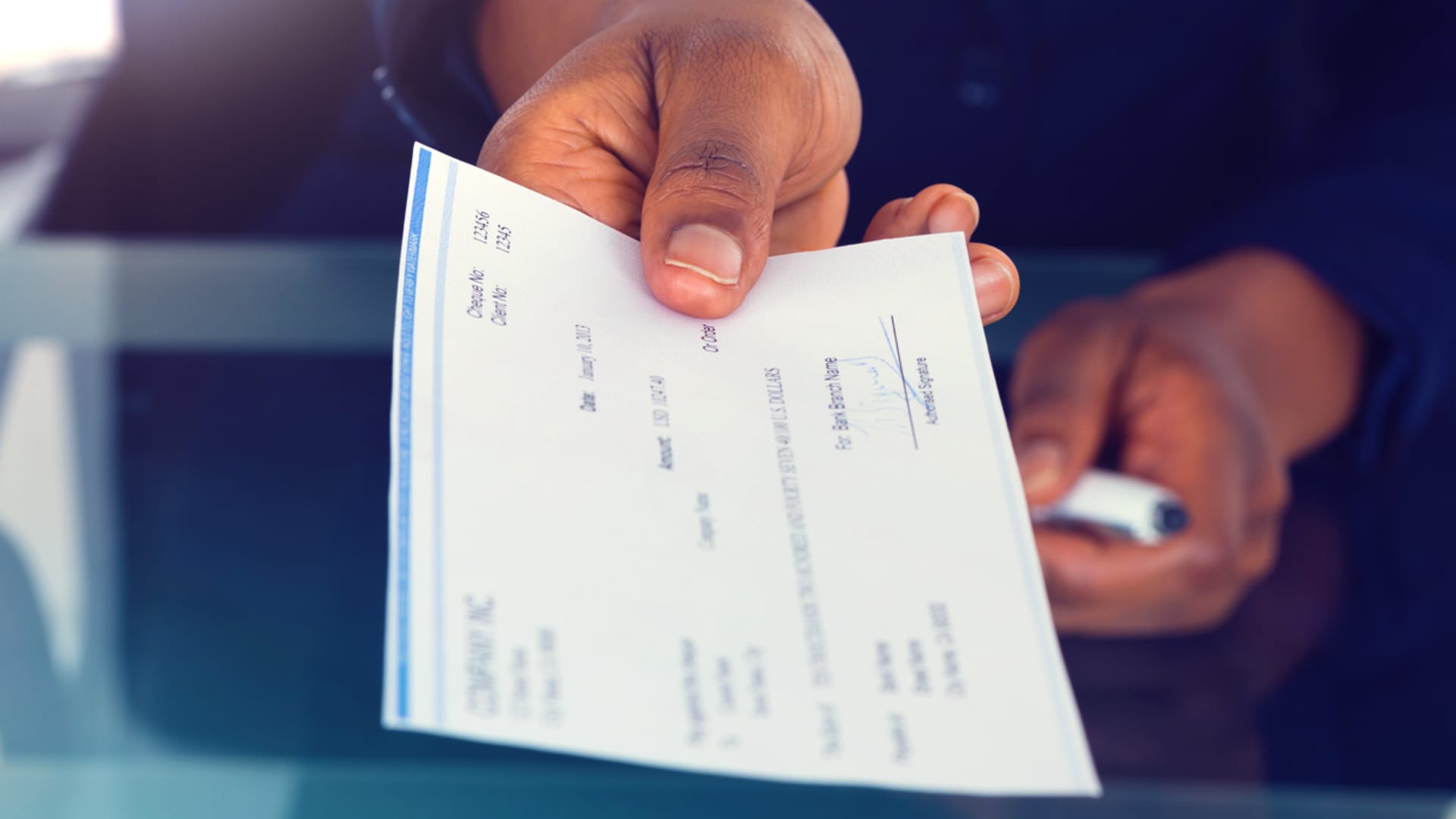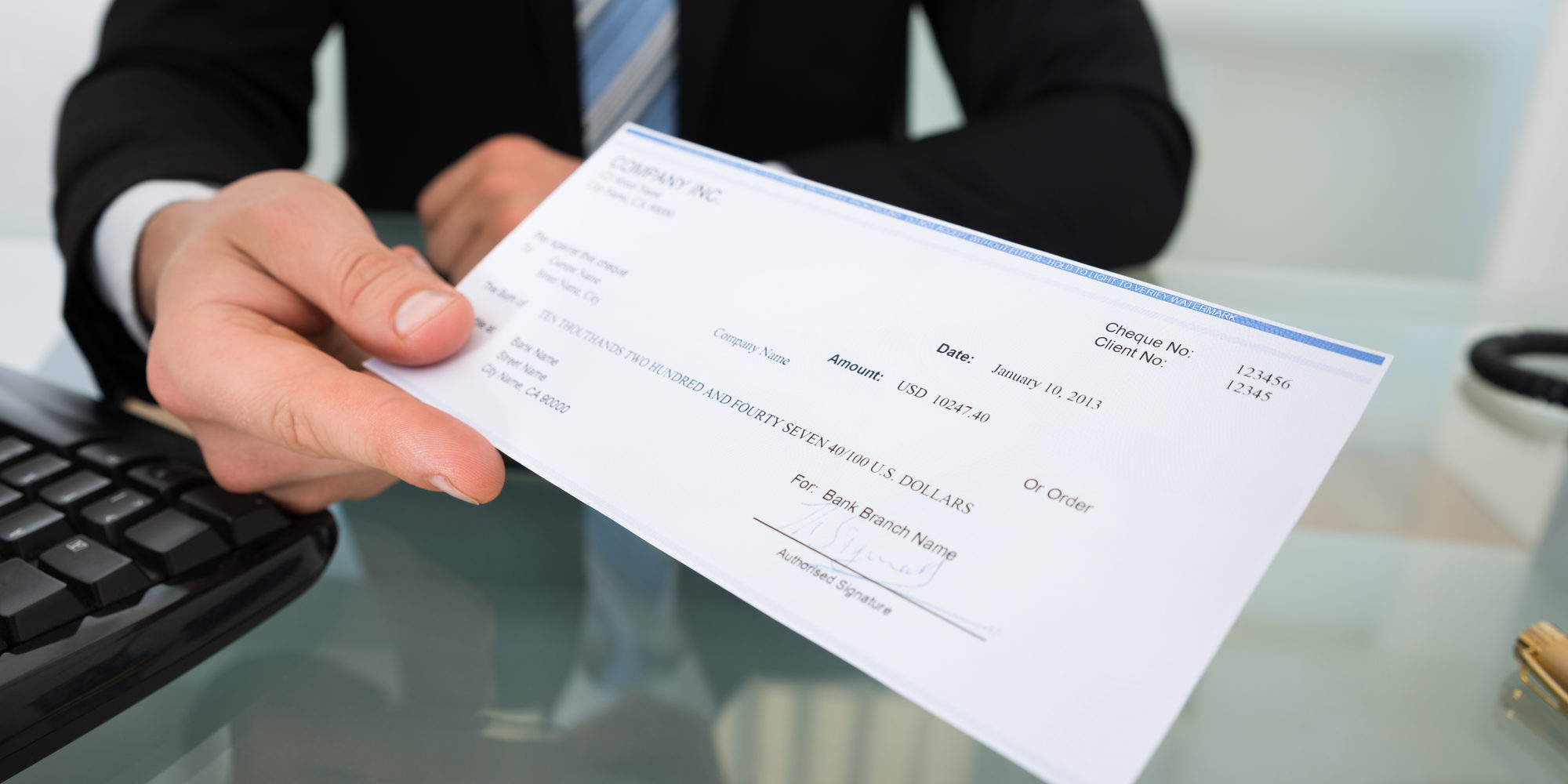Best Way To Use Your Paycheck - Building A Solid Emergency Fund
The best way to use your paycheck involves thoughtful budgeting and strategic planning. By identifying the best way to use your paycheck, you can optimize your financial resources and ensure that your hard-earned money works for you.

Morgan Barrons
Dec 10, 2023
In the hustle and bustle of our daily lives, few things have a more immediate impact on our well-being than the paycheck we receive at the end of a pay period. Even while the thrill of getting paid might be exhilarating, we must understand that how we spend our hard-earned money now will determine how we are treated financially later on.
The art of using your income wisely is more than just budgeting; it's a multifaceted approach that includes setting priorities for your finances, budgeting fundamentals, and wise choices on saving, investing, and spending.
In this article, we will examine the nuances of money management and the best way to use your paycheckto utilize your income to meet short and long-term financial objectives.
Regardless of your stage of life, whether you are a young professional, a family in the midst of raising a family, or a retiree, the concepts covered here are universal and will enable you to make financially wise decisions.
Tips To Managing Your Paycheck
You are most likely not managing your money sensibly if you do not have a strategy on how to spend your monthly or bi-weekly wage. Here are five simple yet valuable suggestions for better paycheck management.
Automatically Deduct Contributions
The simplest method to safeguard your funds from your irresponsible actions is to set up as many automatic deductions as you can. Taxes and your healthcare plan will probably be deducted from your work, but you should also automate items like 401(k) payments.
In the same vein, confirm that you are utilizing employer match programs to their fullest. If match programs are new to you, they are schemes in which your company will match, dollar for dollar, and your contributions to eligible investment plans up to a predetermined proportion.
In other words, your company will contribute an extra $2,000 if they match the first 5% of your salary contributions, which comes to $2,000 in this case. Take that money; it's free.
Observe Your Savings
After taking care of your long-term retirement savings, you should make contributions to your shorter-term savings. Automating this procedure to take money directly out of your paycheck before you have an opportunity to spend it is advised by financial experts.
Paying yourself first is a method that necessitates treating your savings as a fixed expenditure. This implies that instead of waiting to see how much money you have left at the end of the month, you put money away as soon as you receive it.
Set Aside Money For Necessities
Following the deduction of all contributions, your monthly take-home pay remains. Put money aside for requirements as soon as the cheque clears. These are the costs of living, which include housing (lease or rent), utilities, petrol, groceries, auto payments, and so on.
Don't handle this money in any other way; instead, transfer it to a different account. It would be ideal if you paid these bills and debts straight away. This will eliminate the temptation to use the money for other purposes.
Budget The Rest For Discretionary Expenses
You've now covered your essential costs and saved some cash for the future. What's left over can now be used as a discretionary fund. You may use this money for a variety of items, such as enjoyable activities like dining out, seeing movies, and shopping.
If your current wage is small, your discretionary money could be a few hundred bucks a month. Recognize that as time goes on, your income will increase; in the meantime, don't use your savings accounts when the money is low. Maintaining your discipline and working toward your income goals will allow you to have more considerable discretionary money eventually.
Don't Feel Obligated To Use It All
The last piece of advice is one that many young professionals need help to grasp. It's okay to spend whatever discretionary money you have left over at the end of the month. Living paycheck to paycheck is OK. Put your cash away and preserve it!
How Much Should You Save From Every Paycheck?
There are various formulas and budgeting tools that you may use if you are attempting to figure out how much money you should set aside from your salary each month. The 50/30/20 rule is the most prominent of them.
According to this, you should make it a goal to save up twenty percent of your monthly income or each paycheck. According to this strategy, you should allocate fifty percent of your monthly income to cover your critical needs, spend thirty percent of that amount, and then save the remaining twenty percent. There is no magic bullet that can save you money in every situation.
Nevertheless, some techniques have been tried and tested, and this is one of the strategies that you might use. Your ultimate goal should be to save as much money as you can so that you may use it for things like retirement and other expenditures in your life.
However, you should also continue to have some cash flow left over so that you may have some fun today. By doing so, you prevent yourself from limiting your spending and sliding back into a pattern of poor spending habits.
Ways To Stretch Your Paycheck Further
Observe A Spending Plan
You can make sure you'll have enough money coming in each paycheck to cover your living expenditures by creating a budget. It enables you to budget your money, make informed decisions, and prevent overspending each month. Pen and paper, a helpful budgeting tool, or a spreadsheet may all be used to establish your budget.
Generally, a budget has line items for each of your expenditure categories, including savings, credit card or loan payments, insurance, food, and transportation.
Reduce Non-Essential Spending
Making a budget opens your eyes: You'll be able to track every dollar you spend and determine which costs are the easiest to reduce. For example, you could be receiving monthly bills for services like streaming and gym memberships that you no longer use.
In the end, you may discover that only spending a little time to detect and eliminate various needless costs might save you hundreds of dollars per month.
Find any more significant costs that you may reduce or postpone in addition to the smaller ones. A staycation or a shorter getaway might take the place of a more extended holiday. You can postpone buying a new automobile if your present one is in excellent condition.
Eat What’s Already In Your Pantry
Reducing your food expenditures will help your salary go further. Making meal plans with what you currently have in your cupboard is one method. Shelf-stable products that you have previously purchased, such as cereal, canned soups, sauces, noodles, or rice, may be used to prepare a number of meals.
Additionally, look through your freezer for anything you might have overlooked. In addition to concentrating on the food you currently have, spare your cash by reducing or giving up eating out.
Make Sensible Grocery Budgetary Decisions
Reducing your food bills can also help you make better weekly grocery store purchases, freeing you more cash for other expenses. You'll be shocked at how much cutting a few easy guidelines may do for your food expenses.
For example, the most affordable commodities, such as fruits and vegetables, are typically found along the store's perimeter. Pre-packaged convenience foods that are typically more expensive and less nutrient-dense can be found in abundance on the inner aisles.
Use tap water instead of buying and transporting cases of bottled water home. Try a reusable bottle with an integrated carbon filter if yours needs to be filtered.
How Much Of Your Paycheck Should You Invest?
Stock investing is a practical means of increasing one's wealth and achieving financial security. Determining the appropriate investment amount is contingent upon several financial factors.
Take into account your investing horizon, risk tolerance, ambitions about money, and discretionary cash. You may choose to allocate a more significant portion of your paycheck to stock investmentsif you have a high level of discretionary money, a significant financial objective, and a taste for risk.
Start With The End Of Mind
To begin with, carefully define your financial objectives. Which would you prioritize, above all else, a comfortable retirement or saving for a down payment on a home in five years? Financial objectives that are SMART (specific, measurable, realistic, relevant, and time-bound) help you track your progress and guide your investing selections.
Figuring Out How Much To Invest
When determining how much of your paycheck to invest in stocks, you should take into account your risk tolerance, investing time horizon, available income after requirements, and financial objectives.
The 50-30-20 rule is a popular guideline that recommends setting aside 50% of your after-tax income for necessities, 30% for discretionary expenses, and 20% for investments and savings. The percentage of that 20% allotted for equities is determined by your level of risk tolerance.
You could take a more cautious approach and invest a smaller portion of your portfolio, between 10% and 15%, in equities if you're risk averse. This lessens the possibility of suffering significant losses, but it can also reduce your chances of making significant gains.
However, you can allocate a more considerable amount to equities if you have a longer investing horizon and a higher risk tolerance. Even more money might be allocated by investors with a higher risk tolerance, although a 25–30% equity allocation would be more aggressive.
Applying the 50-30-20 guideline to a $50,000 after-tax income would entail making investments of $10,000 per year, or around $833 each month.
Even though equities have historically demonstrated the ability to yield more significant long-term returns, you might choose to start investing after you've established an emergency fund. To serve as a safety net for finances in case of unforeseen needs, experts advise saving three to six months' worth of spending.
Determining Where To Invest Your Money
Allocating your cash will be your next step after determining how much of your income to invest. The secret to controlling risk and reaching your financial goals is diversification. You may spread your investment over a variety of account types and assets, depending on your investing horizon and risk tolerance.
Specialized financial instruments called investment accounts are made to keep and manage your money. Individual brokerage accounts, retirement accounts (such as 401(k)s or IRAs), and tax-advantaged accounts (such as health savings accounts) are examples of common account kinds.
Every kind of account has different withdrawal policies and tax ramifications. For instance, brokerage accounts provide greater flexibility but are liable to capital gains taxes, while retirement accounts give tax benefits but usually impose penalties for early withdrawals. The ideal combination of accounts to choose from will rely on your timeframe and financial objectives.
Common Mistakes People Make When Managing Their Paycheck
Effective pay management is essential for maintaining financial stability, but many people unintentionally make mistakes that make it more difficult for them to accumulate wealth in the future. This post will examine some of the typical errors individuals make while utilizing their paychecks and offer advice on how to stay clear of them.
Expanding More Expenses Than Income
Living over one's means is a common mistake. Some give in to the allure of quick satisfaction and wind up spending more than they can afford. Financial stress and debt accumulation may result from this. It's critical to prioritize spending by differentiating between needs and wants in order to prevent this.
Ignoring Necessary Bills
Refraining from prioritizing necessary costs is another frequent error. Priority should be given to necessary costs like groceries, electricity, and rent or mortgage payments. Ignoring these can lead to unstable finances and, in severe situations, to missing payments and debt accumulation.
Not Creating An Emergency Fund
Despite the fact that emergency funds serve as a financial safety net, many people still need to establish them. When crises strike, relying entirely on one's salary without saving money for unforeseen costs can cause financial instability. Financial resilience requires the establishment of an emergency fund and regular contributions to it.
Ignoring Debt With High-Interest Rates
Credit card debt and other high-interest debt may mount up rapidly and pose a severe financial strain. Setting aside debt repayment as a top priority might impede long-term financial objectives. Utilizing techniques such as the snowball or avalanche method can assist people in methodically repaying their debts and regaining control over their finances.
Not Saving Enough For Future Objectives
It is a mistake to neglect to save for future objectives, even though urgent costs sometimes take precedence.
Setting away money for long-term goals is essential, whether those goals are retirement, house ownership, or school. Making consistent contributions to investment portfolios or savings accounts guarantees advancement toward these objectives.
Neglecting Benefits For Employees
Benefits for employees, such as health savings accounts and retirement contributions, are frequently disregarded. These advantages may impact financial well-being. A chance to improve financial stability is lost when employees need to use what their companies have to offer fully.
Steer Clear Of Investments
Some people refrain from investing because they think it will be too complicated or risky. On the other hand, total avoidance of investments might impede the building of wealth. Starting tiny and grasping the fundamentals of investing can pave the way for long-term financial success.
Neglecting To Examine And Modify Financial Plans
It is a mistake to fail to adjust as one's financial circumstances change. It is ensured that the financial strategy stays current and successful by routinely assessing and modifying financial plans in response to changes in income or life events.
Prudent wage management necessitates careful attention to detail and calculated preparation. People may create the conditions for a more secure and profitable financial future by staying away from these typical blunders and implementing wise financial habits.
FAQs About Paycheck
What Is The First Step To Using Your Paycheck Effectively?
Making a thorough budget that accounts for both variable and fixed costs, as well as savings and emergencies, is the first step.
Why Is Building An Emergency Fund Considered A Crucial Aspect Of Using Your Paycheck Wisely?
An emergency fund keeps people from depending entirely on their salary in case of unanticipated costs by serving as a safety net for their finances.
Why Is It Important To Save For Future Goals, And How Can Individuals Start Doing So?
Maintaining long-term financial security requires saving for future objectives. Setting specific financial objectives and making consistent contributions to investment portfolios or savings accounts are good places for people to start.
To Sum Up
Making prudent use of your salary is essential for a stable financial future. People may take charge of their money by setting up a realistic budget, giving priority to necessary spending, and avoiding typical mistakes like living over their means or forgetting to save for an emergency.
Additional best way to use your paycheck to achieve financial stability include leveraging work perks, saving for future objectives, and paying off high-interest debt. Financial plans should be regularly reviewed and adjusted to maintain flexibility in response to life's changes.
Managing your income strategically creates opportunities for long-term wealth building and a more affluent future, in addition to fostering financial resiliency.




